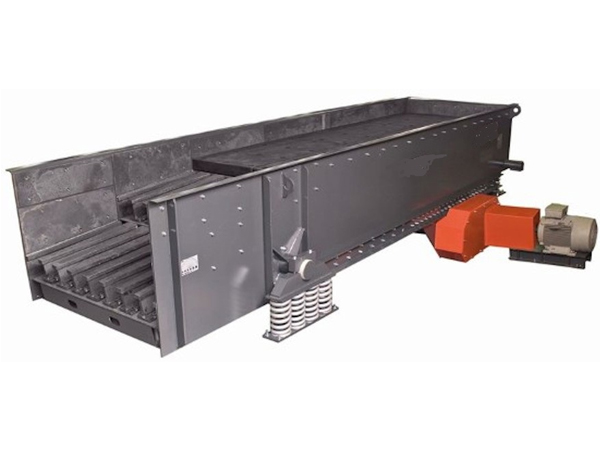Proper maintenance of a vibrating feeder ensures optimal performance, prolongs the equipment’s life, and minimizes downtime. Vibrating feeders are essential for moving materials smoothly and consistently, so here’s a guide to effective maintenance practices:

Daily visual checks: Inspect for loose bolts, excessive wear, or cracks in the frame and support springs. Look for any signs of material buildup on the feeder pan that could impact vibration.
Check for abnormal vibrations: Listen for unusual sounds or vibrations that could indicate mechanical problems or unbalanced loads.
Inspect drive motor and belts: Check the drive motor and belts for signs of wear or alignment issues, as these can impact the feeder’s efficiency.
Follow lubrication schedule: Lubricate bearings, drive shafts, and any other moving parts according to the manufacturer’s guidelines. Over-lubrication or under-lubrication can cause mechanical issues.
Use recommended lubricants: Ensure you’re using the correct type and grade of lubricant for each component, as specified in the equipment manual.
Ensure proper vibration amplitude: Monitor and adjust the feeder’s amplitude settings if necessary to match the application requirements and material characteristics.
Calibrate the stroke: Regularly check and calibrate the stroke (the distance the feeder moves per cycle) to ensure it meets the required specifications.
Control feed rate: Maintain a steady and appropriate feed rate to prevent excessive wear and tear on the feeder pan and reduce potential overloads.
Check spring integrity: Inspect the feeder springs for signs of fatigue or cracking, as damaged springs can reduce vibration efficiency and cause uneven feeding.
...
For more detailed information on vibrating feeder maintenance, please click here: https://www.hsd-industry.com/news/vibrating-feeder-maintenance/